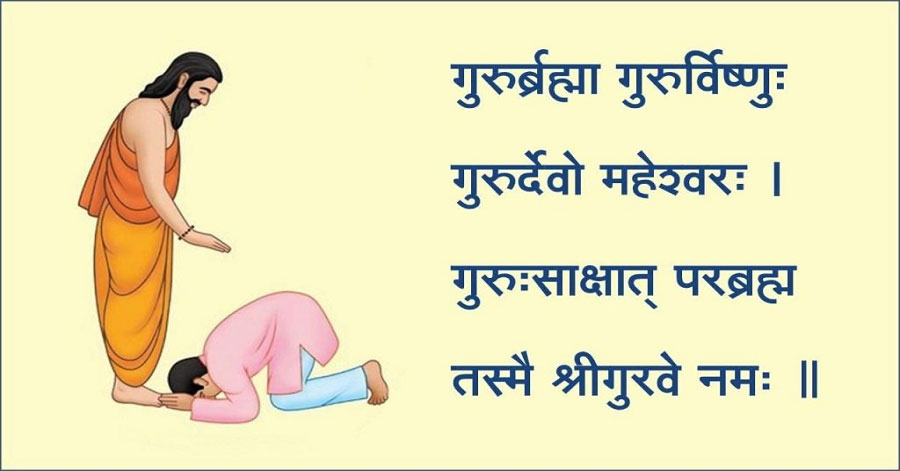
Understanding Guru Purnima: Its Significance & Celebration
In the rich tapestry of Hindu Culture, one unique thread that runs deep is the celebration of the spiritual guru, the mentor, the teacher – embodied in the festival of Guru Purnima. On this auspicious day, disciples show reverence to their spiritual guides, acknowledging the immeasurable impact they have on shaping their lives. But what is the historical and cultural significance of Guru Purnima? How is it observed in different parts of India and the world? This comprehensive guide sheds light on the essence of this festival, highlighting its relevance in modern times.
The Historical Context of Guru Purnima
Guru Purnima, often referred to as Guru Full Moon or Master's Day, has a rich historical context. Rooted in the Vedic tradition, this festival is a testament to the vital role the 'guru' plays in Hindu society and philosophy.
A Journey Back in Time
The first full moon day after the summer solstice, typically falling in July, is celebrated as Guru Purnima. It is believed to be the day when Krishna-Dwaipayana Vyasa – author of the Hindu epic Mahabharata and one of the most revered gurus in Hindu tradition – was born. Hence, the day also carries the name 'Vyasa Purnima.' It is on this day that disciples pay homage to their gurus and remember Vyasa's immense contribution to Hindu philosophy and culture.
The Guru-Shishya Parampara
The Guru-Shishya Parampara or the teacher-disciple lineage is a key element of Hindu philosophy. The guru is not merely a teacher, but a guide, a mentor who leads the disciple from ignorance to knowledge, from darkness to light. As the great Hindu sage, Swami Vivekananda, once said, "The guru is the means of realization. There is no knowledge without a teacher."
Significance of Guru Purnima in Hindu Culture
The significance of Guru Purnima extends beyond historical relevance. It's a day that underlines the profound relationship between a guru and a disciple, emphasizing the Guru's pivotal role in guiding the individual toward spiritual enlightenment.
The Spiritual Connotation
In the word 'Guru,' 'Gu' symbolizes darkness, and 'Ru' signifies the dispeller of that darkness. Hence, the guru is the one who illuminates the path towards wisdom and self-realization. On Guru Purnima, disciples express gratitude for this divine guidance, fostering a deeper spiritual bond.
An Auspicious Occasion
In the lunar calendar, the full moon or 'Purnima' is considered particularly auspicious. Coupled with its association with the revered Vyasa, Guru Purnima stands as a day of heightened spiritual significance. It's a time for introspection, for disciples to assess their spiritual progress under the guidance of their gurus.
Rituals and Practices During Guru Purnima
Guru Purnima is marked by a range of rituals, reflecting the diversity of Hindu Culture. Although practices may vary across regions and communities, the underlying theme of reverence towards the guru remains universal.
Disciples' Duties
Traditionally, disciples rise early, bathe, and wear clean clothes. They fast for the day, only breaking the fast after the guru's worship. They offer the guru 'Dakshina' or a gift, symbolizing their respect and gratitude. This could range from simple acts of service to more material gifts.
Prayers and Chants
Disciples chant mantras or hymns in the guru's honor, meditate, and partake in prayer sessions. The most common is the Guru Stotram, a Sanskrit hymn that glorifies the guru's role.
The Guru's Role
The guru, in turn, blesses the disciples, sometimes giving discourses on spiritual matters. This exchange is seen as a way to strengthen the Guru-Shishya bond and foster spiritual growth.
Celebrating Guru Purnima in Modern Times
While steeped in tradition, Guru Purnima has adapted to the evolving societal context, underlining its relevance in contemporary times.
Embracing the Digital Space
With the advent of the internet, many spiritual organizations and gurus have started hosting online sessions, enabling disciples worldwide to participate in the celebrations.
Broadening the Interpretation
In modern times, Guru Purnima is not limited to spiritual teachers alone. The term 'guru' has broadened to include anyone who imparts significant knowledge or skills. Hence, it has become a day to honor and express gratitude towards all kinds of mentors, whether they be teachers, parents, or even friends.
Conclusion
Guru Purnima is more than just a festival; it's an embodiment of the sacred Guru-Shikshya relationship, a testament to the influence of gurus in shaping our lives and our paths. Even in the rapidly changing world, the essence of Guru Purnima holds firm – honoring those who lead us from ignorance to knowledge, from darkness to light.
In celebrating this festival, we not only uphold a grand tradition but also embrace the timeless wisdom and guidance of those who inspire and guide us, our beloved gurus. As we navigate the trials and triumphs of life, let's remember these profound words by Kabir, a revered Hindu mystic: "Guru and God both appear before me. To whom should I prostrate? I bow before Guru who introduced God to me."
Annual Day Culture




